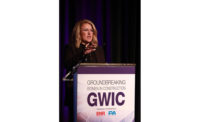Brazil Seeks More P3s for Water, Infrastructure, Energy
The government of Brazil expects to invest, with private partners, some $100 billion over the next decade in transportation, airports and particularly water treatment systems, according to Apex-Brasil, the Brazilian trade and investment promotion agency. Although the pandemic has caused some existing partnerships to be restructured and some bids delayed, trade experts say the long-term opportunities in Brazilian infrastructure are still significant.
Apex-Brasil hosted a virtual media salon July 27 outlining the steps that the Brazilian government and key industry players have taken to make infrastructure concession projects more attractive to foreign investors, from tax and administrative reforms to eased industry regulations.
Earlier this month, the Brazilian National Congress passed a bill aimed at improving Brazil's sanitation regulatory framework and thereby making the sector more attractive to investors. Regional Development Minister Rogério Marinho stated during the July 27 event that the country's sanitation system needs approximately $137 billion in investments over the next ten years.
The bill came after six years of political battles and three administrations, he noted. He compared the plan to revitalize the San Francisco River basin with water treatment to the Colorado River diversions that allowed western state regions in the United States to become agricultural and economic powerhouses, particularly Los Angeles. “The San Francisco River runs through a semi-arid area of 20 million inhabitants,” he said. “It is debilitated from an economic perspective. Over a thousand cities need water treatment.”
Continued public-private partnerships (P3s) in infrastructure, energy, telecoms and mining investments will be key to post-pandemic economic recovery, participants said. Special Secretary of the Secretariat Martha Seillier noted: "We believe that the path for economic recovery certainly passes through more private investments. The private sector is particularly relevant in the post-pandemic scenario, when Brazil will still hold the largest concessions and privatizations program in the world."
In 2016, the government launched the Investment Partnership Program (PPI) to coordinate its concession and privatization projects. Brazil also runs the world's largest concession program, attracting more than $170 billion to its assets.
“We have already delivered 178 projects and $163 billion in contracts,” Seillier noted.
Seillier said that some economic conditions are still favorable, despite the COVID-19 crisis. “Brazil has an average [Internal Rate of Return] for infrastructure projects of around 10%, which is not seen in any advanced economy – and is even hard to find in emerging markets." She added: "Real interest rates have dropped close to zero, which will reduce borrowing costs and enhance the credit market in general."
She noted further that while the airport and rail sectors are suffering short-term losses in revenue and traffic, cargo movement to and from ports have remained robust. Brazil recently released bidding documents for the privatization of the Port of Santos, which handles an estimated 28% of the country's cargo trade, according to Apex-Brasil, Officials expect the port's privatization to bring in roughly $71.5 million in investments.
Despite the current hit to airports, the country is still moving forward with feasibility studies on P3s for 22 airports, as well as for road and rail projects, Seillier noted.
Apex-Brasil's investment manager Roberto Escoto said that in the last 10 years, the trade agency has supported more than 1300 investors and facilitated 200 projects worth $26.5 billion. Brazil is the world’s sixth-largest target of global investments, Escoto added, with an estimated $72 billion invested during 2019. “Much infrastructure potential remains unexploited,” he said.





